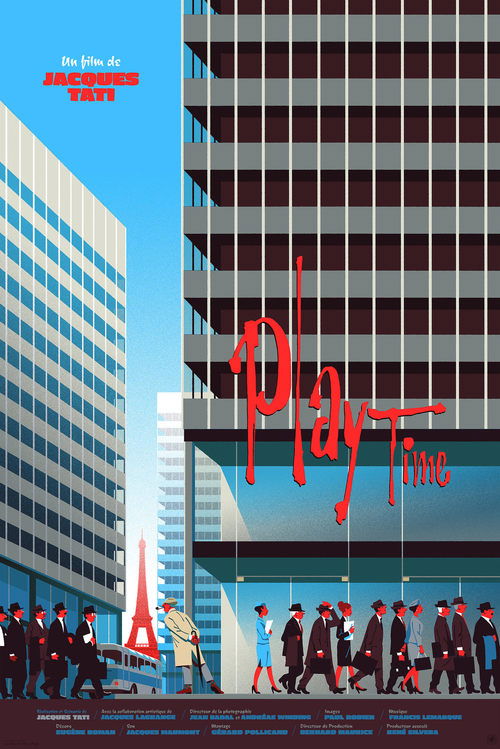
Title: PlayTime
Year: 1967
Director: Jacques Tati
Writer: Art Buchwald
Cast: Jacques Tati (Monsieur Hulot), Barbara Dennek (Young Tourist), Rita Maiden (Mr. Schultz's Companion), France Rumilly (Woman Selling Eyeglasses), France Delahalle (Shopper in Department Store),
Runtime: 115 min.
Synopsis: Clumsy Monsieur Hulot finds himself perplexed by the intimidating complexity of a gadget-filled Paris. He attempts to meet with a business contact but soon becomes lost. His roundabout journey parallels that of an American tourist, and as they weave through the inventive urban environment, they intermittently meet, developing an interest in one another. They eventually get together at a chaotic restaurant, along with several other quirky characters.
Rating: 7.8/10